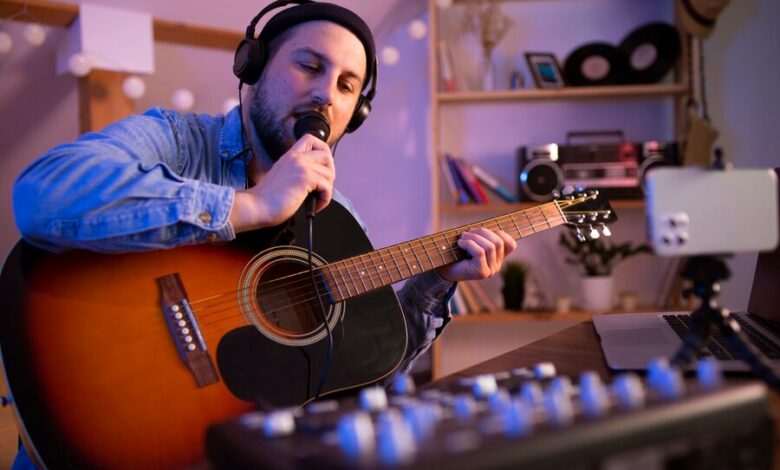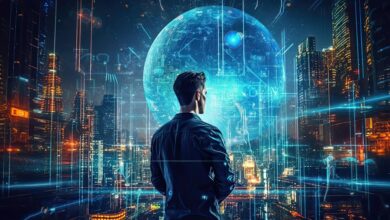The Future of Voice Acting: AI Celebrity Voice Generators

Introduction to AI in Voice Acting
In recent years, artificial intelligence (AI) has made significant strides in various industries, reshaping how we approach tasks that were once thought to require a human touch. One such industry experiencing a paradigm shift is entertainment, particularly in voice acting. Traditionally, voice acting relied on the unique talents of individuals who could bring characters and stories to life with their vocal prowess. But with the advent of AI and machine learning, the landscape is rapidly changing.
AI’s impact on traditional voice acting cannot be overstated. From creating realistic voiceovers for advertisements to generating entire dialogues for video games, AI has proven its capabilities. However, this technological advancement brings both opportunities and challenges for those in the voice acting industry.
The Rise of AI Celebrity Voice Generators
AI celebrity voice generators have emerged as one of the most intriguing developments in this space. These tools can mimic the voices of well-known personalities, creating audio that sounds remarkably like the original celebrity. This technology utilizes deep learning algorithms and vast datasets of recorded speech to generate accurate voice replicas.
Some popular AI celebrity voice generators include:
- VocaliD: Known for its ability to create custom synthetic voices.
- Lyrebird: Offers advanced voice cloning technology.
- Descript Overdub: Allows users to create ultra-realistic voiceovers by simply typing text.
These tools have opened up new possibilities for content creators, enabling them to incorporate famous voices into their work without needing the actual celebrity to record the lines.
The Future Landscape for Voice Actors
The rise of AI in voice acting presents a mixed bag of challenges and opportunities for human voice actors. On one hand, AI can handle repetitive or less creative tasks, freeing voice actors to focus on more nuanced and emotionally rich performances. On the other hand, there’s a legitimate concern about job displacement, as AI-generated voices become increasingly sophisticated.
However, this technology can also create new roles and opportunities for voice actors. For instance, they may become consultants or trainers for AI systems, providing the initial voice data that these systems learn from. Additionally, voice actors can leverage AI tools to enhance their own performances, adding layers of depth and complexity that were previously unattainable.

AI Technology in Content Creation
AI is transforming various content creation sectors, from gaming to audiobooks:
- Gaming: AI-generated voices can provide real-time dialogue for NPCs (non-playable characters), making the gaming experience more immersive.
- Audiobooks: AI can assist in producing audiobook narrations quickly and cost-effectively, though it may lack the emotional nuance of a human narrator.
- Marketing and Advertising: Brands can use AI voices for quick turnarounds on ad campaigns, ensuring consistency and saving on costs.
While AI offers numerous benefits, such as cost savings and efficiency, it does have drawbacks. The primary concern is the loss of the human touch—AI voices, no matter how realistic, often lack the emotional depth and subtlety that a human voice can provide.
The Human Touch The Value of Authentic Voice Acting
Despite the advancements in AI, there is something irreplaceable about the human touch in voice acting. Human voice actors bring a level of emotion and authenticity that AI has yet to replicate fully. This emotional resonance is crucial in storytelling, where the connection between the audience and the characters can make or break the experience.
Voice actors can adapt and thrive in this new era by focusing on what makes them uniquely human. Here are some strategies:
- Diversify Skills: Learning new skills, such as motion capture or dubbing, can make voice actors more versatile and valuable.
- Leverage Technology Use AI tools to enhance rather than replace their work, adding layers of complexity to their performances.
- Brand Building Establish a strong personal brand that highlights their unique voice and emotional range.
Conclusion
The future of voice acting is undeniably intertwined with the rise of AI technology. While AI celebrity voice generators offer exciting possibilities, they also present challenges that need careful navigation. The key for voice actors and content creators lies in leveraging AI’s strengths while maintaining the irreplaceable human touch that makes voice acting so special.
We’d love to hear your thoughts on this evolving landscape. Share your experiences and insights in the comments below. Together, we can shape the future of voice acting in the age of AI.
Call to action: Are you a voice actor or content creator? Sign up for our newsletter to stay updated on the latest trends in AI and voice acting.



